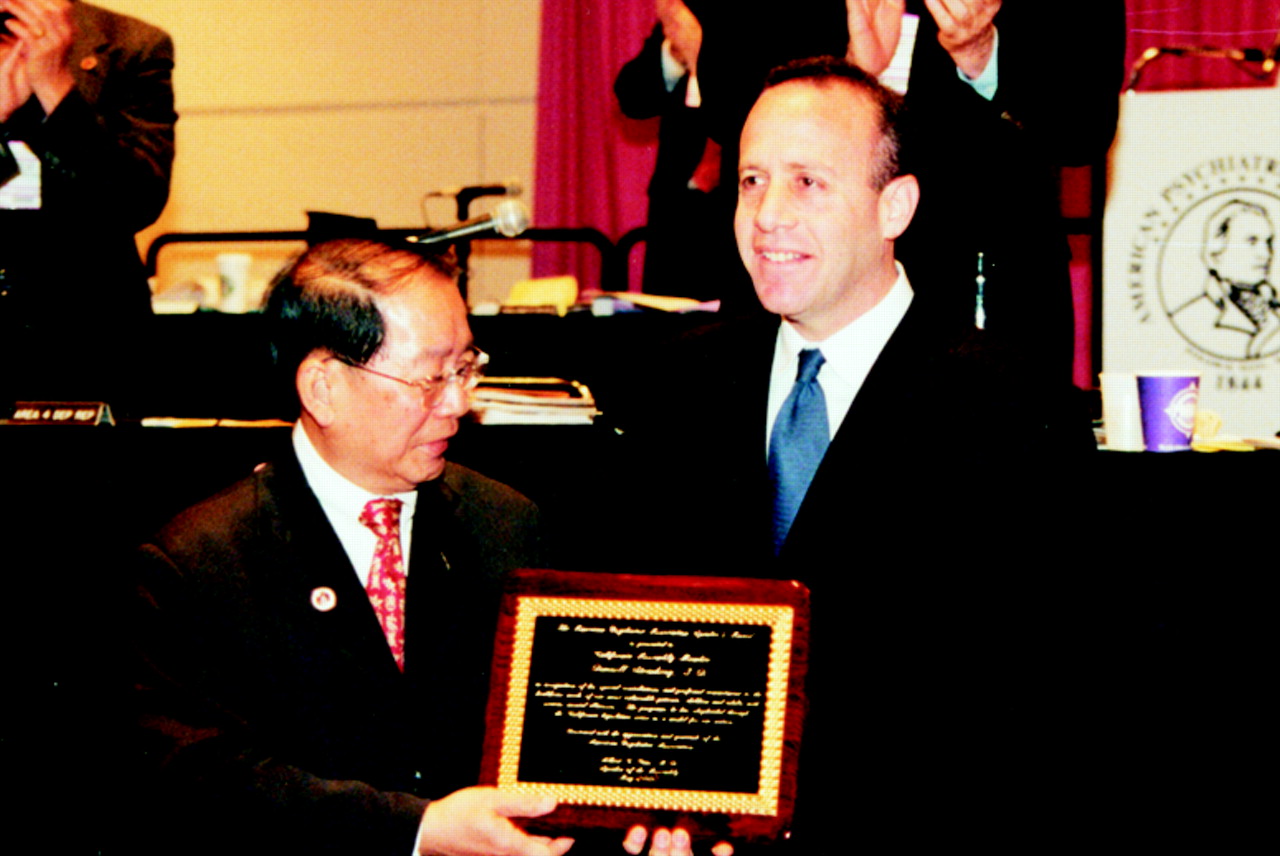In California, a state famed for the size of its budget deficit, voters passed Proposition 63, a ballot initiative that is estimated to result in $700 million in new money for mental health services each year (see
page 1).
Members of the California Psychiatric Association (CPA) give a great deal of credit for that victory to Assembly member Darrel Steinberg (D).
Steinberg, in turn, attributes success to the fact that “everyone knows someone with mental illness. It is not about `those people.'”
He added, “Mental illness is one of the long-ignored issues in society, but the irony is that it's personal to more people than we imagine.”
“[We ran] a great campaign,” he said. “And, unlike many other good causes, we were also able to strike a chord with the voters.”
Steinberg said he learned from traveling around the state campaigning for the initiative that there was general knowledge that Ronald Reagan, as the state's governor, had shut down many of the state mental hospitals in the 1960s.
“Residents see the consequences of that decision every day in terms of homelessness and other social problems,” he said.
The Campaign for Mental Health, which led the battle for the initiative, emphasized the idea that Proposition 63 would be a remedy for the state's broken promises to people with mental illness.
Steinberg is completing his third term representing the 9th Assembly District, which includes most of the city of Sacramento. He became interested in the issue of mental illness when serving on Sacramento's City Council in 1996. The city sued a charity serving homeless people for violating a law concerning limitations on providing meals on Sunday.
The case, which attracted national media attention, was really about the city's frustration with dealing with homelessness, said Steinberg.
He could see the linkage of the problems in Sacramento with the state's failure to honor its earlier commitments to provide community-based care after officials closed mental hospitals.
Steinberg made mental health services a key element of his campaign for the state's Assembly in 1998. He began his service with hopes of passing a $350 million bill to rebuild the state's mental health system but soon confronted political realities that made passage unlikely and developed a more realistic goal.
With the support of John Burton, president pro-tem of the California Senate, and the state's first lady, Sharon Davis, he secured passage of AB 34 in 1999. Initially funded at $10 million, the legislation supported Community Mental Health Demonstration Grants to serve adults with severe mental illness who are homeless or at risk of homelessness.
Steinberg said, “I'm a stickler for accountability. We wanted to make certain the money would be well spent.”
The bill required the state's Department of Mental Health to develop a reporting mechanism to conduct “extensive monitoring and evaluation” and report results to the legislature.
Those evaluations helped secure an increase in funding to $55 million in subsequent years and were cited by advocates for Proposition 63 to persuade voters that funds will be well spent.
The CPA has twice named Steinberg Legislator of the Year. The nonpartisan California Journal named him Assembly Member of the Year for 2004 and honored him as the Assembly's top member in the categories of integrity, best problem solver, and hardest working.
Steinberg will leave office in 2005 because of term limits. “The number-one thing I want to do,” he said, “is to bring this program model to the rest of the country.”
Information about AB 34 is posted at<www.dmh.ca.gov/PGRE/Integrated_Services.asp>.▪

